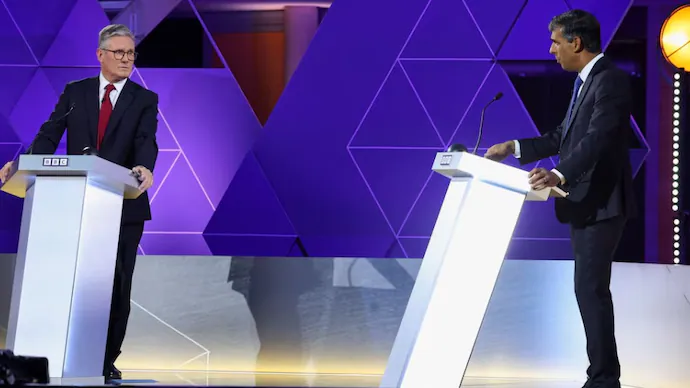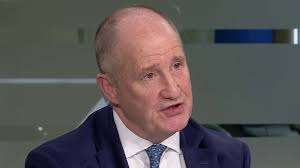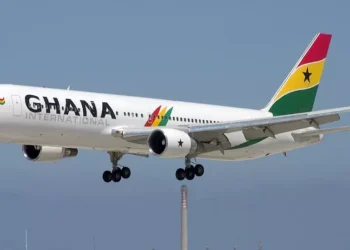In a candid revelation, Business Minister Kevin Hollinrake has admitted to betting on the Conservative Party’s victory in the upcoming general election.
Hollinrake confirmed that he placed the wager several months ago, expressing confidence in his party’s ability to secure a parliamentary majority. “Yes, I did. Not my seat, I think that would be wrong,” Hollinrake stated when asked about his bet.
Hollinrake, who is seeking re-election in Thirsk and Malton, emphasized the need for a broader discussion on the ethics of betting on political outcomes.
“We should have a proper debate about and decide whether it’s right or wrong that people have a bet on things they are involved in,” he said.
Despite his gamble, Hollinrake remained optimistic, noting that the odds were 9:1 when he placed his bet. “You may think that’s foolhardy,” he joked.
“Victory is always possible if you don’t stop fighting.”
The issue of election betting has taken center stage in recent weeks, following a series of revelations about various political figures involved in similar activities.
The controversy began when it was reported that Craig Williams, a Conservative candidate and close aide to Prime Minister Rishi Sunak, had placed a bet on a July election just days before it was officially announced.
Williams is currently under investigation by the Gambling Commission for potentially using insider information to gain an unfair advantage.
The scandal has since expanded, with reports indicating that another Tory candidate, two senior party officials, several police officers, and a member of the Welsh parliament are also under scrutiny for betting on the election date.
Additionally, a Labour candidate is being investigated for betting against himself in his constituency.
In a particularly striking development, it was revealed that Philip Davies, a Tory candidate, had placed an £8,000 bet against his own chances of winning in Shipley, his marginal seat.
While Davies did not dispute the sum, he asserted that the matter was “nobody’s business.” There is no suggestion that Davies, married to Cabinet Minister Esther McVey, has broken any laws.
The election gambling scandal has sparked a fierce political battle between the leaders of the Conservative and Labour parties.
Starmer Criticizes Sunak For Indecision In Gambling Scandal
During a heated head-to-head debate, Labour leader Keir Starmer accused Prime Minister Sunak of being slow to respond to the allegations.

Starmer highlighted the swift suspension of Labour candidate Kevin Craig, who admitted to betting against himself, contrasting it with what he described as Sunak’s delayed response.
Starmer criticized the Conservative Party’s handling of the situation, saying, “The instinct of these people to think the first thing they should do is try to make money, that was the wrong instinct, and we have to change that.”
He further accused Sunak of being “bullied into” taking action, emphasizing his own commitment to maintaining high ethical standards among his candidates.
In response, Sunak urged voters not to “surrender” to a Labour government, echoing language used by former Prime Minister Boris Johnson during Brexit debates.
“Do not surrender to the Labour party the control of our borders. If Labour wins, the people smugglers are going to need a bigger boat,” Sunak warned, framing the election as a critical choice for the nation’s future.
Undoubtedly, the gambling scandal has cast a shadow over the general election, raising serious questions about the integrity of the political process and the ethical standards of those seeking public office.
With investigations ongoing and political tensions running high, the outcome of both the election and the various probes into gambling activities remain uncertain, keeping the public and political observers on edge.
READ ALSO: Ghanaian Youth Urged to Demand Accountability from Political Leaders



















